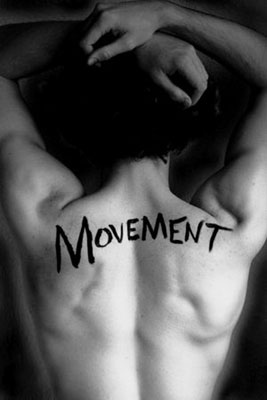All Nonfiction
- Bullying
- Books
- Academic
- Author Interviews
- Celebrity interviews
- College Articles
- College Essays
- Educator of the Year
- Heroes
- Interviews
- Memoir
- Personal Experience
- Sports
- Travel & Culture
All Opinions
- Bullying
- Current Events / Politics
- Discrimination
- Drugs / Alcohol / Smoking
- Entertainment / Celebrities
- Environment
- Love / Relationships
- Movies / Music / TV
- Pop Culture / Trends
- School / College
- Social Issues / Civics
- Spirituality / Religion
- Sports / Hobbies
All Hot Topics
- Bullying
- Community Service
- Environment
- Health
- Letters to the Editor
- Pride & Prejudice
- What Matters
- Back
Summer Guide
- Program Links
- Program Reviews
- Back
College Guide
- College Links
- College Reviews
- College Essays
- College Articles
- Back
Misandry in Modern Times
While it may seem like it, sexism isn't only a woman's world. Sexism affects both men and boys too in a way that usually makes it so that they can't talk about it.
A common phrase we say is “man up”. A phrase that that means to “stop being weak” or “stop crying about something” but when said to a small child it can make them feel weak or go by the common view that “boys don't cry”. So if “boys don't cry” then boys shouldn't talk about how they feel or how they are being treated because if they do they are “weak” or “acting like a girl”. While it may seem like a stretch this is actually a common thing. It's called Hegemonic Masculinity.
Hegemonic Masculinity follows the core values of distancing yourself from femininity, restricting emotions, being tough and aggressive, seen as highly sexual with women, and to prove one's heterosexuality by being homophobic (“Men and Masculinities.”). All of these are toxic traits and it's all because we want to see men who are the epitome of this stereotype, manly, tough and aggressive. We have to think about how this not only affects men but small boys. It gets into their heads at a young age that men act like this and if they aren't that way they aren't a “man” or traditionally masculine.
Studies show that men are biologically born with a gene that can be more aggressive but aggressiveness must be encouraged and nurtured in order to turn into something that would be used in a situation(“Unexpected Social Pressures in Males.”). This is what media promotes to men and little boys. Being more aggressive is “masculine” and “manly” in medias terms but they don't see that this actually hurts these people and that a feminine side to someone is often something men aren't “allowed” to show.
I think all of us know at least one feminine guy. Someone who isn't the epitome of masculine and maybe likes to do things that aren't traditionally masculine. When you think about this person or a person like this what would your first assumption of them be? Would you assume that they might be sensitive or that they might be gay? While these traits aren’t negative that slurs that come with them are.
Why do we make these assumptions though? It’s because it's what we're told to think. When you embrace something as natural it becomes natural. One example would be women and pants. When a woman wears pants to most its normal and to some it's empowering, but if a man or a boy wore a dress because they simply liked it then they would be scrutinized.
When we are born we don't have gender roles. A boy may join his sister in a game of dress-up and have fun as a child won't realize that there's anything wrong with that. What we are told creates these gender roles and differences and how we view what's right and wrong for a child (“Let's Talk About Gender Baby.”)
Gender roles also aren't just buried in clothing or the way you act it's also in the types of drinks you order. A lot of drinks have more feminine stereotypes that come with them. Fruity, weak alcoholic drinks tend to have this assumption. You would think that something as small as your food or drink taste can affect how people see you and how you choose what to do. Why is it that these small things affect how we see men but it can be completely fine for women.
While it is true that women do face things that men do not there are also a lot of things that men can't do and the gender roles we push onto them make it so that they can't talk about it.
“Men and Masculinities.” Women and Gender Advocacy Cente/.
Fillet, Morgan. “Unexpected Social Pressures in Males.” Unexpected Social Pressures in Males | Gender, Sexuality, and Women's Studies.
Duignam, Aubrey. “Let's Talk About Gender Baby.” Moriah Mayhew, Moriah Mayhew, 15 Feb. 2015.

Similar Articles
JOIN THE DISCUSSION
This article has 0 comments.

In media we always hear about the sexism towards women, but when it happens to men do we overlook it?
In this article we look at the different types of gender roles men and boys are forced to follow by and how this affects them mentally and phisically.